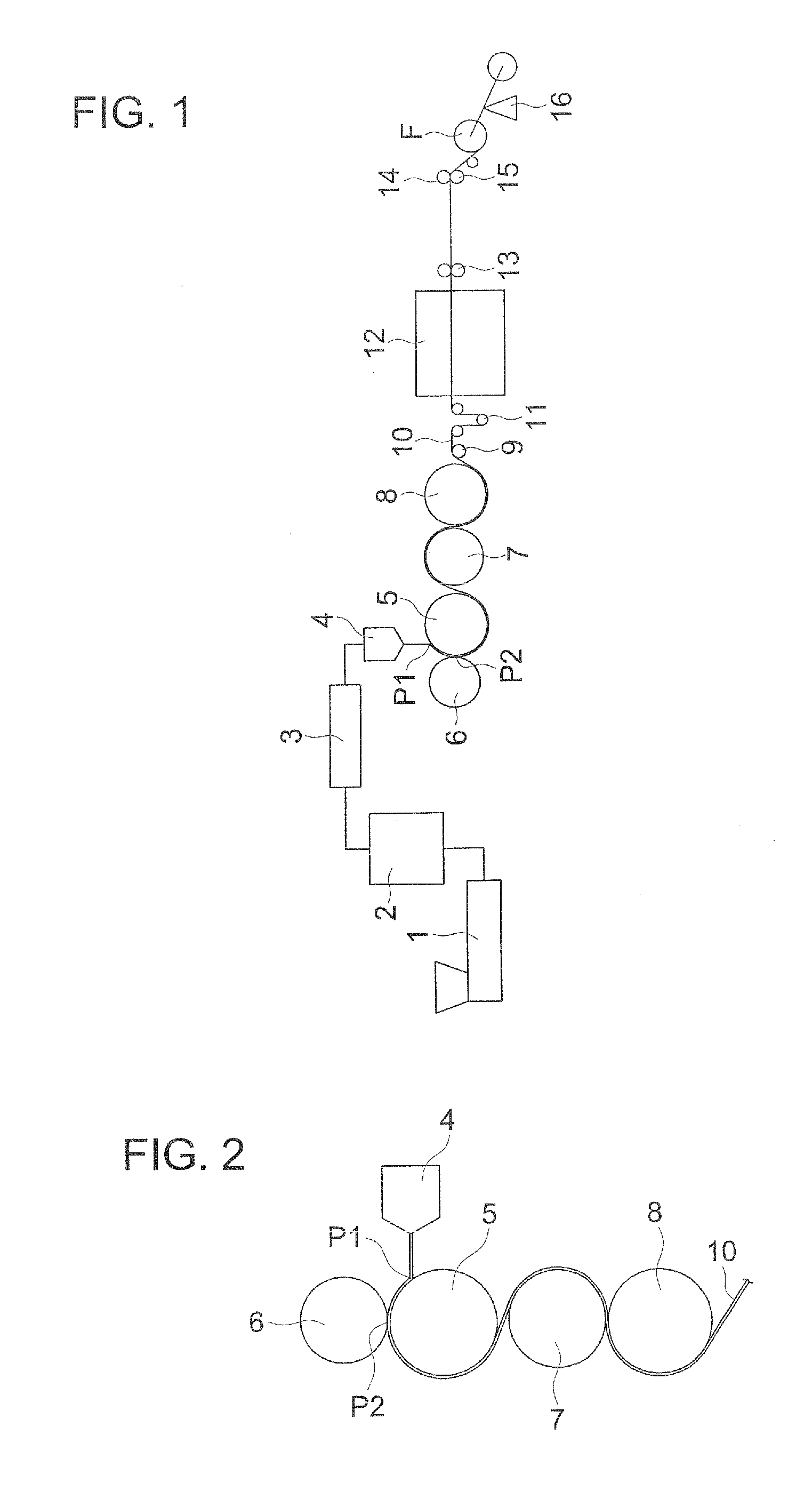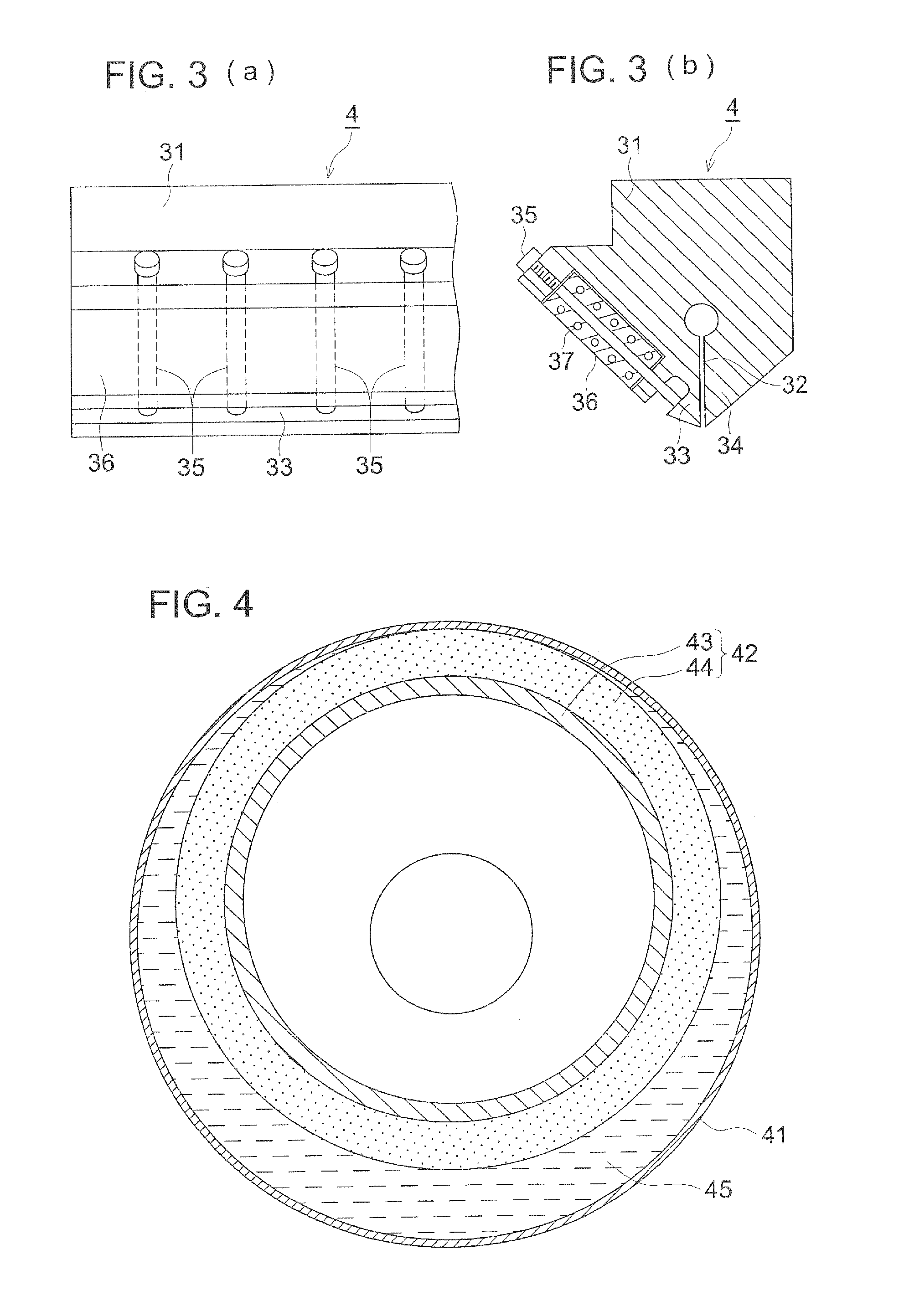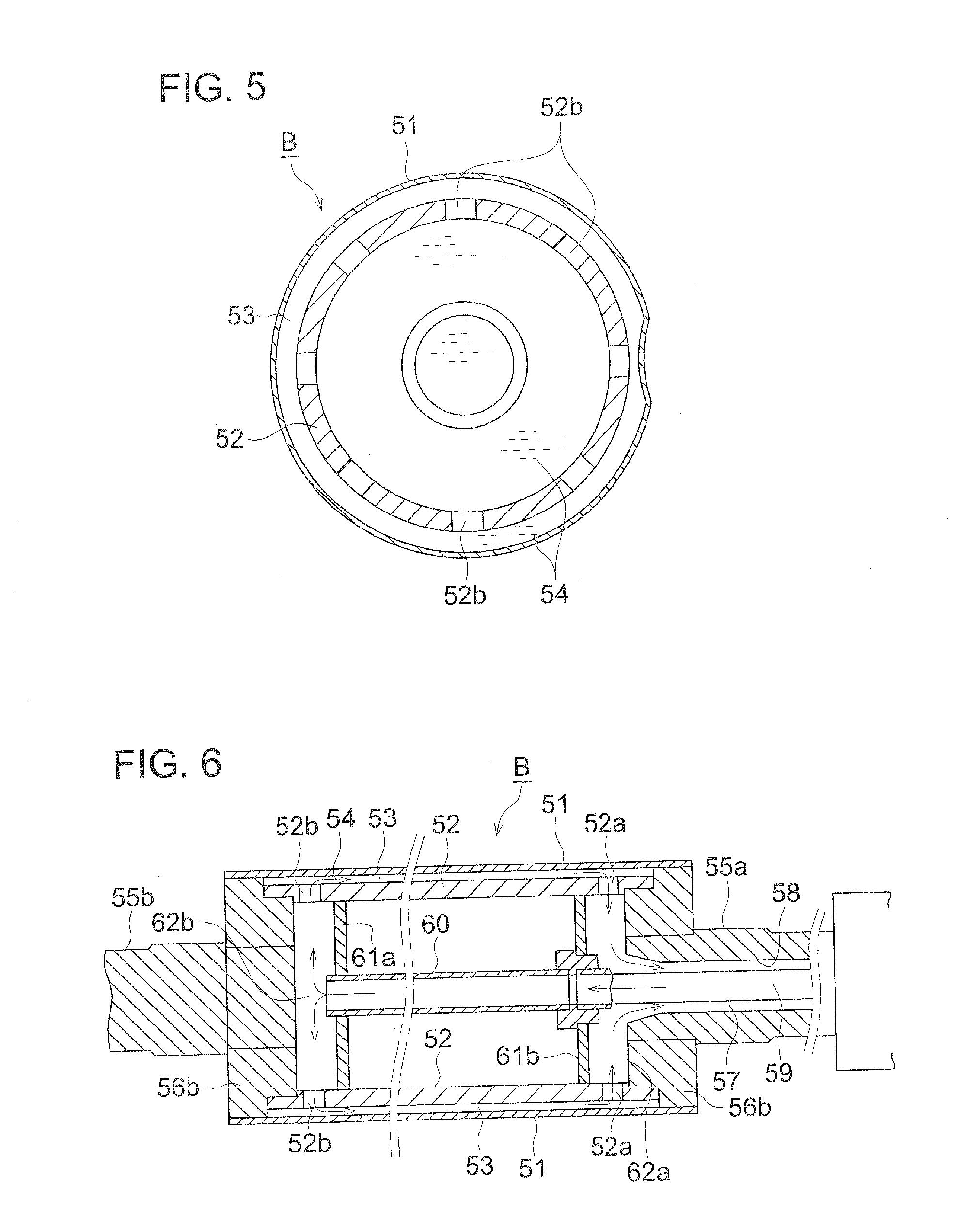Process for producing cellulose ester film, cellulose ester film, polarization plate and display unit
a technology of cellulose ester and cellulose ester, which is applied in the direction of instruments, polarizing elements, optical elements, etc., can solve the problems of reducing the edge portion of the polarization element, increasing the amount of environmental load, and reducing etc., to reduce the luminescent spot foreign material, improve the flatness, and improve the effect of flatness
- Summary
- Abstract
- Description
- Claims
- Application Information
AI Technical Summary
Benefits of technology
Problems solved by technology
Method used
Image
Examples
synthesis example 1
Synthesis of Cellulose Ester C-1
[0278]Synthesis was carried out referring Example B described in JP A H06-501040.
[0279]The following mixed solutions A to E were prepared.
[0280]A: Propionic acid / Concentrated sulfuric acid=5 / 3 (in weight)
[0281]B: Acetic acid / Purified water=3 / 1 (in weight)
[0282]C: Acetic acid / Purified water=1 / 1 (in weight)
[0283]D: Acetic acid / Purified water / Magnesium carbonate=12 / 11 / 1 (in weight)
[0284]E: An aqueous solution prepared by dissolving 0.5 moles of potassium carbonate and 1.0 mole of citric acid in 14.6 kg of purified water
[0285]Into a reaction vessel having a mechanical stirrer, 100 parts by weight of cellulose purified from cotton, 317 parts by weight of acetic acid and 67 parts by weight of propionic acid were charged and stirred for 30 minutes at 55° C. The temperature in the reaction vessel was cooled by 30° C. and 2.3 parts by weight of Solution A was added and stirred for 30 minutes. The temperature in the reaction vessel was cooled by −20° C. and 100...
synthesis example 3
Synthesis of Example Compound
Exemplified Ester Compound 1-40
[0296]One hundred and eighty parts by weight of monomethyl phthalate, 180 parts by weight of toluene, 1 part by weight of dimethylformamide and 130 parts by weight of thionyl chloride were mixed and stirred for 30 minutes at 60° C. The mixture was cooled after completion of reaction and pale yellow liquid was obtained.
[0297]The above obtained pale yellow liquid was dropped into a solution composed of 31 parts by weight of glycerol, 101 parts by weight of triethylamine and 200 parts by weight of ethyl acetate spending 30 minutes at room temperature and stirred for 1 hour. White crystals thus formed were filtered and the filtrate was washed by adding purified water. Then the organic phase was separated and the organic solvent was distilled out under reduced pressure to obtain 116 parts by weight of white crystals with a yield of 60%. The molecular weight of this compound was 579.
synthesis example 4
Synthesis of Example Ester Compound
Exemplified Compound 1-45
[0298]A mixed solution of 45 parts by weight of 2-ethyl-2-hydroxymethyl-1,3-propanediol, 190 parts by weight of pyridine and 450 parts by weight ethyl acetate was held at 80° C. and 330 parts by weight of acetylsalicyloyl chloride was dropped into the solution spending 30 minutes while stirring and then further stirred for 3 hours. After completion of reaction, the reacting liquid was cooled by room temperature and precipitation was eliminated by filtration and the filtrate was washed by adding ethyl acetate and purified water. After that, the organic phase was separated and ethyl acetate was removed by distillation to obtain the objective compound. The molecular weight of this compound was 606.
PUM
| Property | Measurement | Unit |
|---|---|---|
| distribution coefficient | aaaaa | aaaaa |
| molecular weight | aaaaa | aaaaa |
| transparency | aaaaa | aaaaa |
Abstract
Description
Claims
Application Information
 Login to View More
Login to View More - R&D
- Intellectual Property
- Life Sciences
- Materials
- Tech Scout
- Unparalleled Data Quality
- Higher Quality Content
- 60% Fewer Hallucinations
Browse by: Latest US Patents, China's latest patents, Technical Efficacy Thesaurus, Application Domain, Technology Topic, Popular Technical Reports.
© 2025 PatSnap. All rights reserved.Legal|Privacy policy|Modern Slavery Act Transparency Statement|Sitemap|About US| Contact US: help@patsnap.com



